In year 2009, Arc Flash Corporation, together with it’s marketing partner, a-solution did a joint collaboration research with both UPM (Universiti Putra Malaysia) and MARDI ( Malaysia Agricultural body) using our nano tio2.
With UPM, we researched on the self cleaning part of our nano tio2. On the milking section of the cattle farm, cows are parked at an area while waiting for their turn to be milked. The floors of this section is very slimy, and filled with fungus growth. Therefore, most of the cows are being attacked by fungus and bacteria on their legs which will spread up to their body.
We treated our nano tio2 on to the floor of this section after we cleaned the place. We did the typical half treated and half not treated experiment and the results were very promising.
here are the results of the test done in UPM at the milking section of the cattle farm
look at the results, 3 months later
here is the summary
On the other hand, our research with MARDI was to find out if our nano tio2 can prolong the shelve life of fruits for their exports. Fruits naturally releases ethylene gasses. The gas makes the fruits ripe faster soon after they are being plugged from their trees of roots. This is causes problems to fruit exporters because they can’t get them to overseas without freezing them. Byndoing so, the fruits are not fresh and the costs of transportations will be high. Worse still, some fruits cannot be frozen.
Our research with the university is to treat all the materials that contains these fruits including it’s container boxes, and it’s storage room but not the fruit itself. Nano tio2 is known to be able to break VOCs gasses and ethylene is one of the VOCs. The mechanism behind this experiment is to show that even though the fruits keeps releasing the gasses, as long as we have something ( which is our tio2 ) that keeps breaking the gasses, the fruits itself will not ripe so soon and therefore our experiment showed a very promising result that the papayas lasted 18 days and they are still eatable as compared with a non treated environment where the papayas there only lasted 5 days and on the 9th day, they are almost rotten already and not eatable at all.
here are the results and comparison
below is the summary of the whole project
THE TEAM IN THIS RESARCH
FOR DETAILED INFORMATION PLEASE LOG ONTO our thorough report of just simply contact us at heng@nanoyo.com.my
like what you are reading? Click like on ourFacebook for live updates
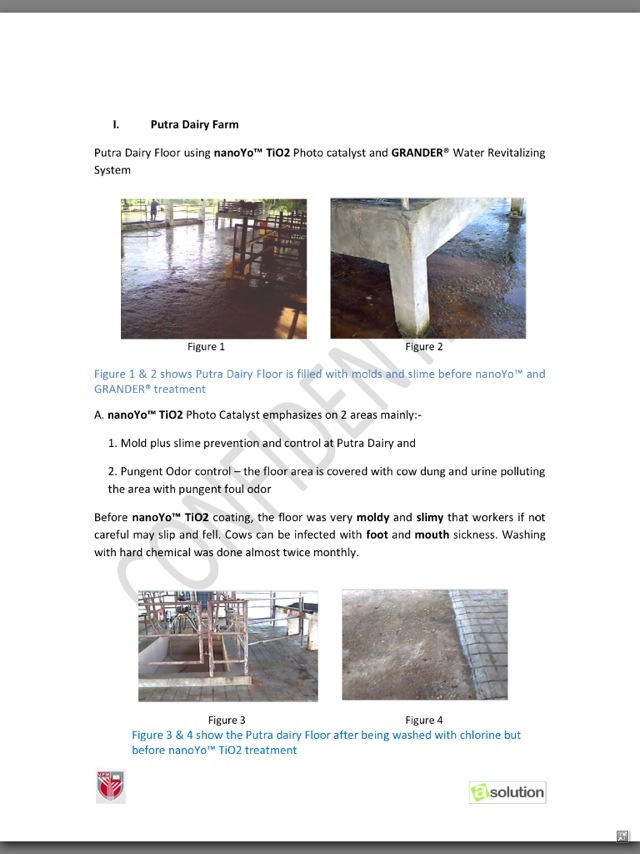
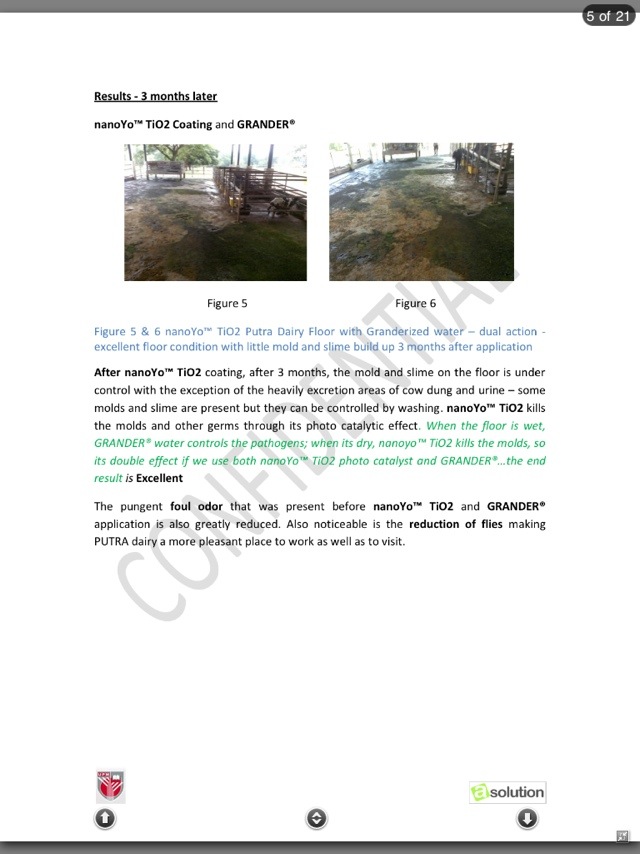
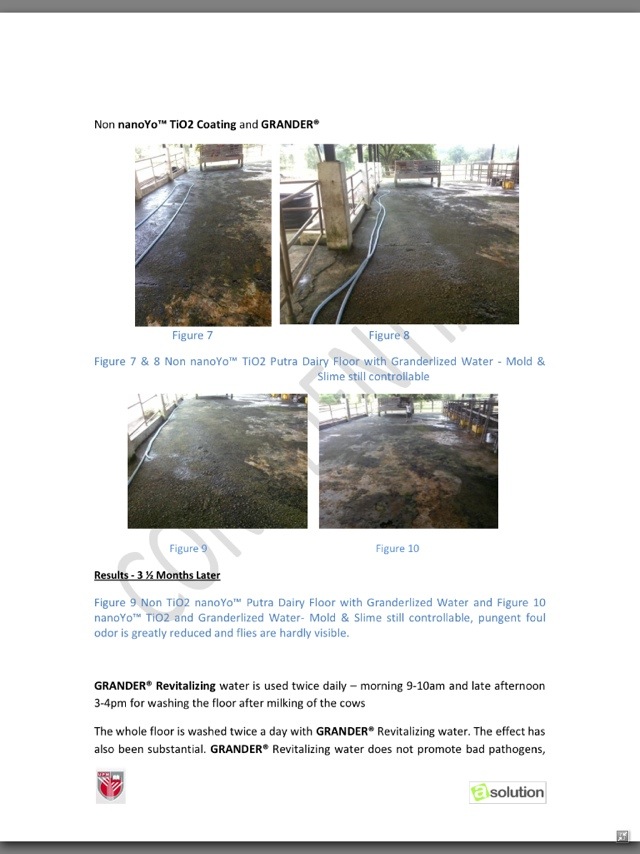
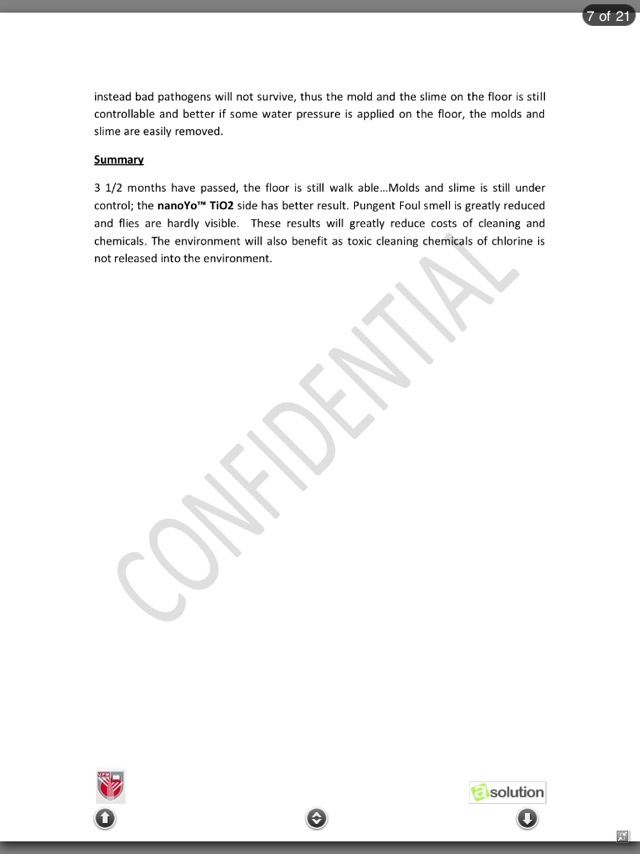
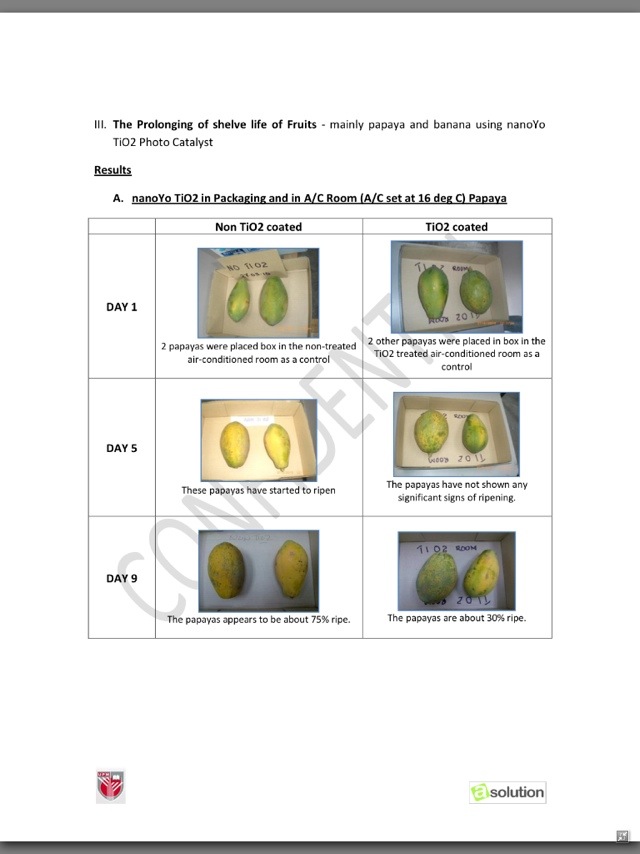
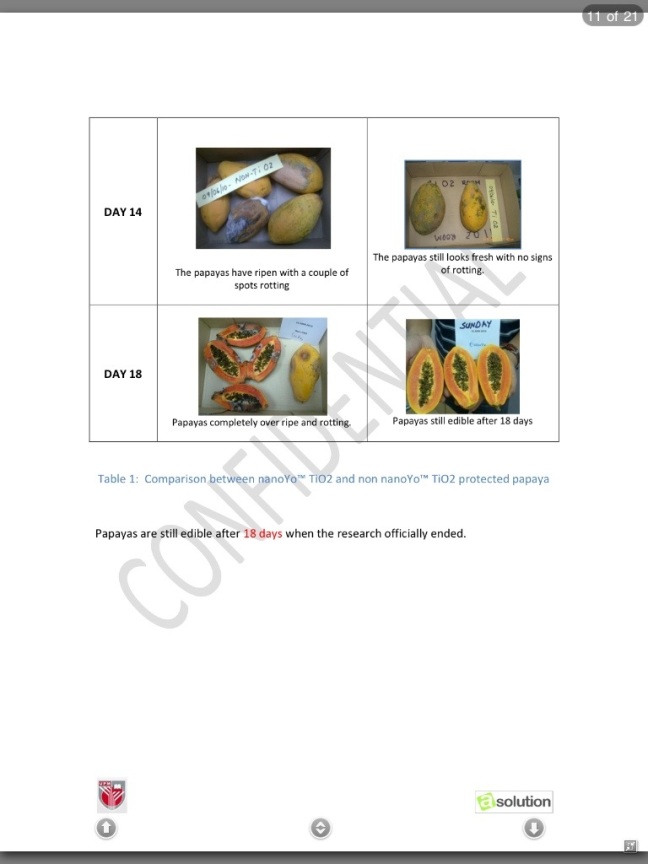
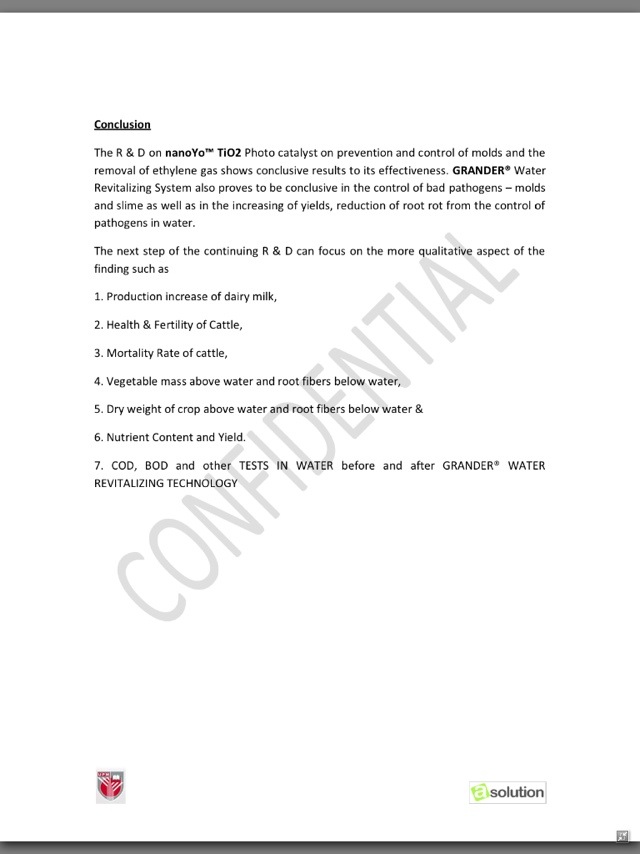
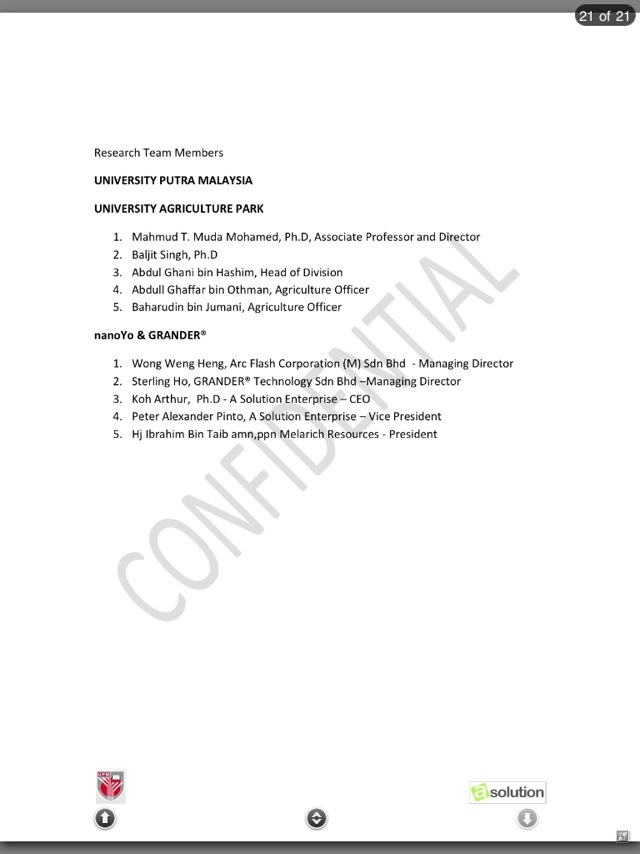
You must be logged in to post a comment.